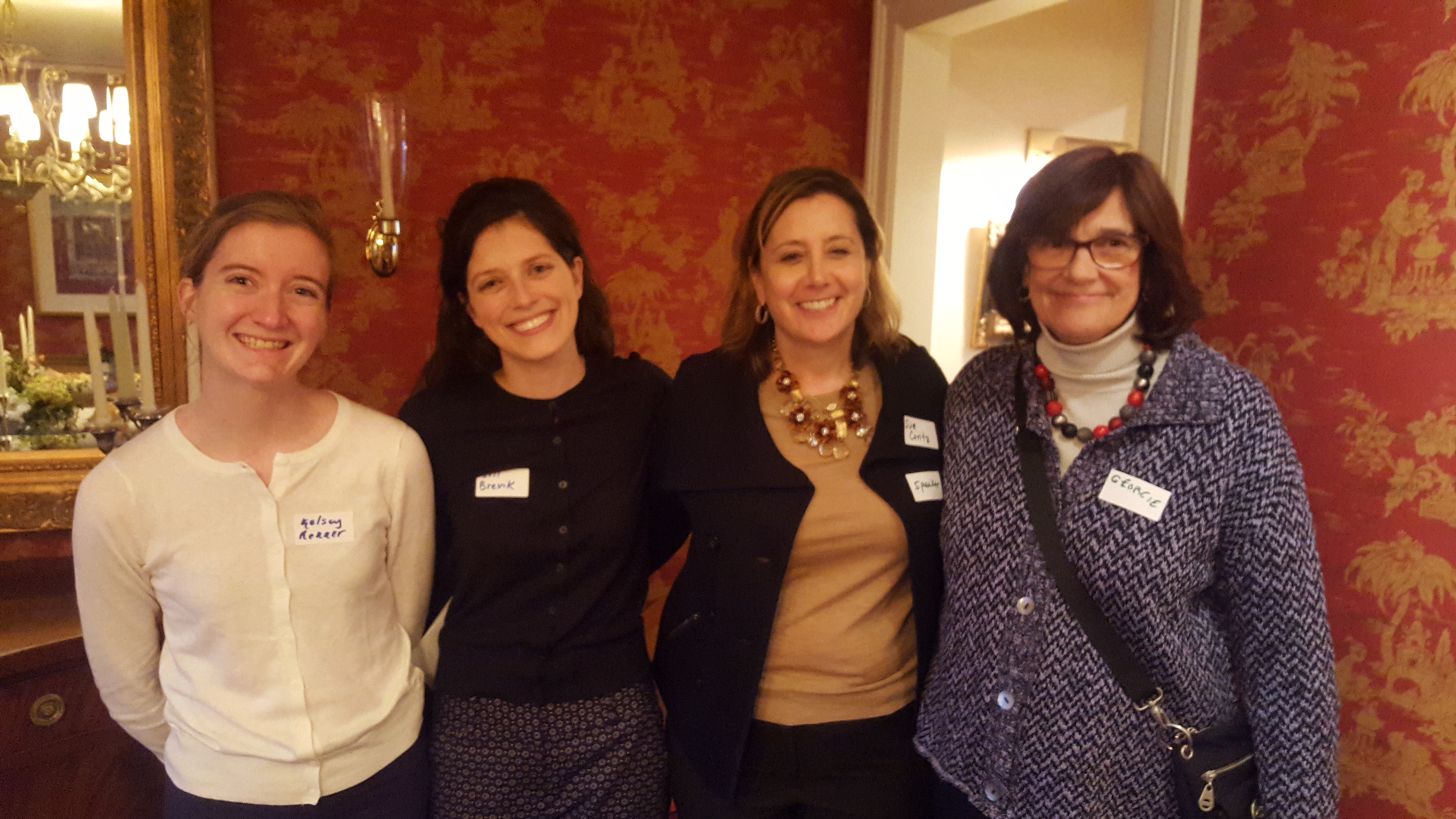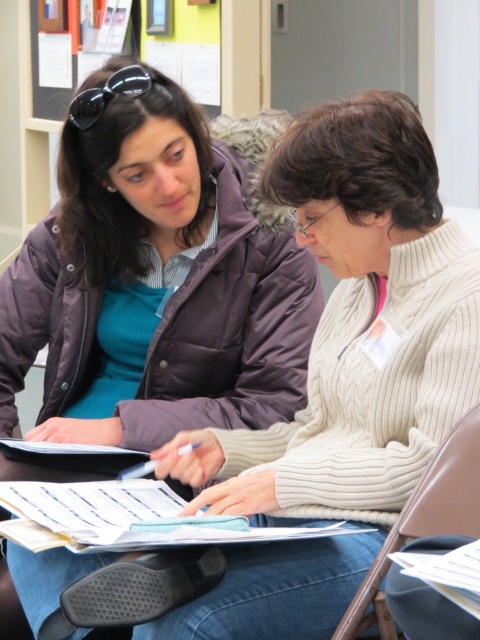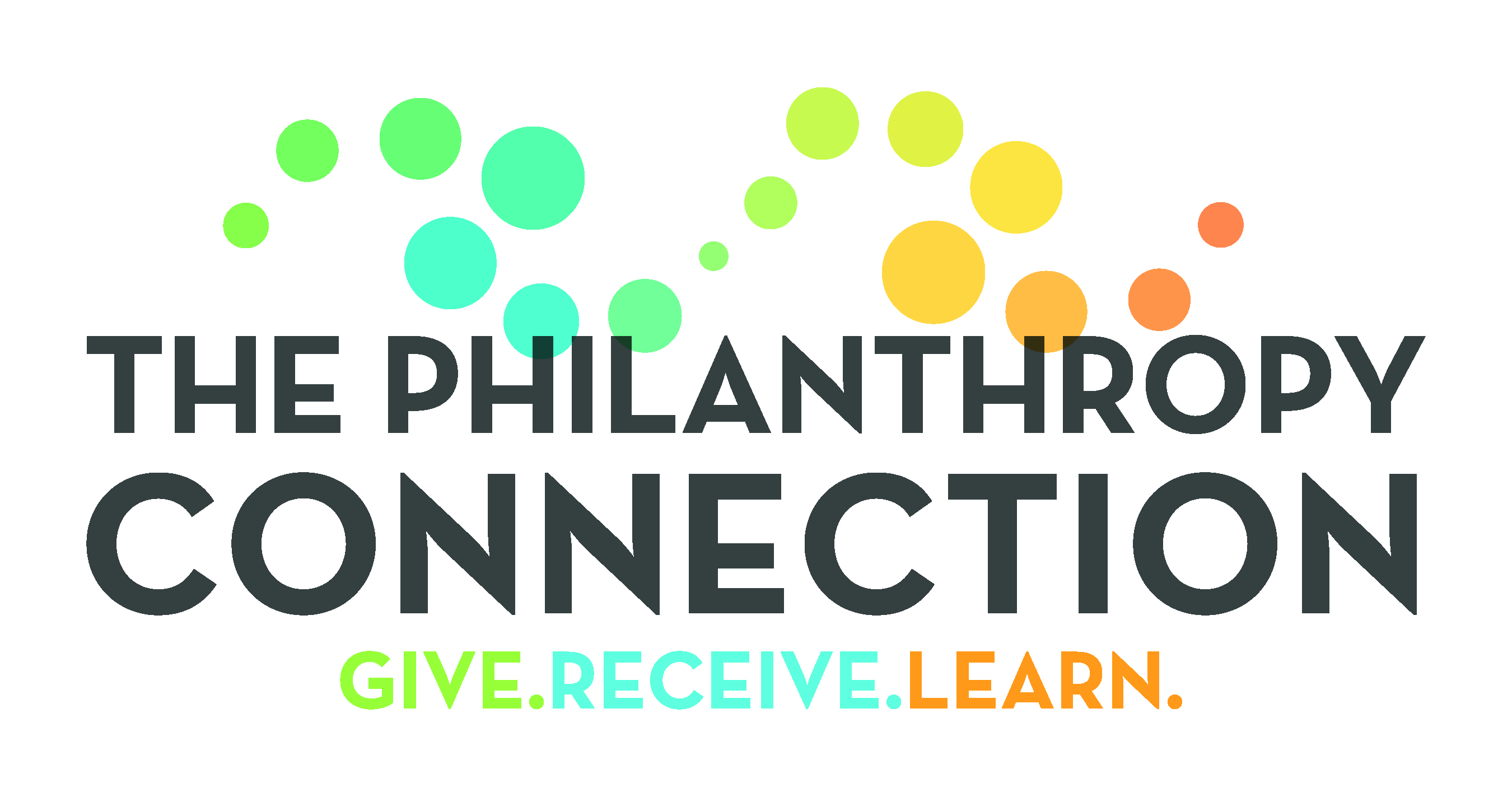What Did We Learn?
Many of you participated in one or more of our educational opportunities this past year. From a Connect the Dots gathering to learn about TPC, to a seminar hosted by Cambridge Trust to discuss effective giving techniques, to one of our Philanthropy Dialogues, there was a full slate of interesting, practical, and fun activity squeezed between September and May.

We’d like to highlight one of the Dialogues, which are held four times during the year and typically attended by 20 to 40 women. The topic for this past April gathering was “What Can Non-Profits and Their Allies Do to Advance Social and Economic Rights for Women?” A thoughtful, provocative discussion followed the presentation by our three panelists. TPC Co-Founder Marla Felcher tells us more…
This was the year we created a TPC Diversity Task Force, whose job it was to increase the diversity of TPC’s grant applicants. The Task Force’s goal was to create a grant application and review process that helped our members select grantees whose leadership reflects the communities they serve. It was in this spirit that we asked representatives of two TPC Grantees, Families First and Budget Buddies, and Miki Akimoto, a national expert on how to incorporate issues of diversity and inclusion in grant-making decisions to lead the Dialogue panel. Not only did we learn about the work of two TPC Grantees and how they are working to make Boston a more equitable place to live for women and minorities, we also learned how to continue improving TPC’s grant-making.

Sue Covitz of Families First demonstrated the importance of inclusion; i.e., incorporating the opinions and voices of the communities served into an organization’s decisions. Covitz shared the story of a less-than-successful project, a new mobile app, which was not used by their clients as extensively as was hoped. The problem? The organization had not done a good enough job incorporating the input of those they served into the app design. Take 2: Covitz’s planning team sought the input of the app’s intended end-users, and voila, usage went up.

Grant-maker Miki Akimoto urged us to consider who we deem “deserving” of grants, both explicitly and implicitly. For example, TPC awards grants to organizations with revenues of $200,000 to $2 million. This is a clearly-stated explicit criterion. But do we use implicit criteria as well, which we may not be aware of, in our grantee selection? For example, the stereotype of “high-achieving Asians” may lead a grant-maker to exclude organizations that serve Asian populations when soliciting grant proposals. Getting beyond this implicit bias requires taking time to become aware of our stereotypes, and in this case, unbundle data that reports on Asians as a homogenous group. In truth, some segments of the Asian population suffer from inequity more extensively than others; e.g., Cambodian males are failing in school at levels higher than almost every other ethnic group in Boston.
As is always the case, TPC members had thought-provoking questions for the panelists. After the program’s conclusion, members spontaneously broke into small groups and continued the discussion for at least another hour – until the hostess gently told us it was time to go home!
We are already working on topics for next year with our first Dialogue to be held on September 19. We are pleased to have guest speaker Chuck Collins, author of “Born on Third Base: A One-Percenter Makes the Case for Tackling Inequality, Bringing Wealth Home, and Committing to the Common Good,” joining us for the evening. An invitation will be forthcoming, but until then we look forward to seeing you soon at a Dialogue or another of TPC’s educational events.
